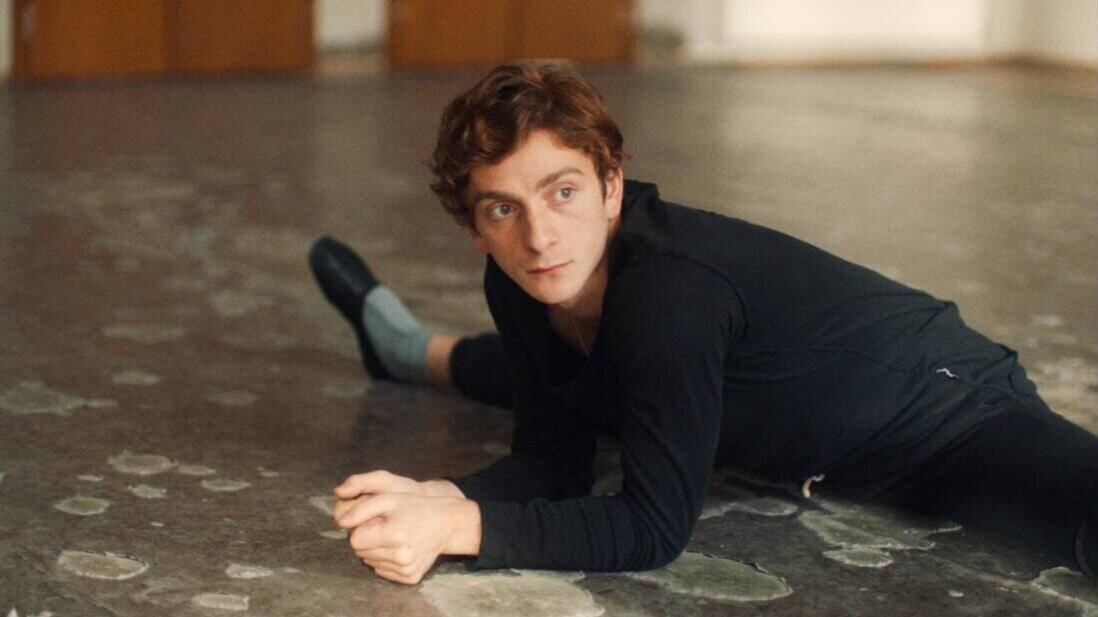And Then We Danced
Appealing players in a film which doesn't end up where you expect.
Levan Gelbakhiani
The writer-director Levan Akin is Swedish but of Georgian descent and this third feature of his is set in Tbilisi. What he gives us is very much a film in two parts in that the tone of the piece changes in the middle. The first half is an engaging portrayal of first love involving two young dancers in the National Georgian Ensemble and, although both lovers are male and thus ensure the appeal of And Then We Danced for gay audiences, the film is quite traditional initially and makes for easy viewing. The very title seems to be in keeping with that, but as the film continues it darkens. That is valid, of course, because traditional attitudes prevail in Georgia and even the national dance is characterised by the forceful masculinity of its male dancers making this a sphere in which homosexuality is widely condemned.
Akin's central character is a dancer in his twenties named Merab. The role is played - and very well played - by Levan Gelbakhiani who is himself a dancer and who was here taking his first acting role. Merab is keen to audition for a vacancy in the main company and finds that one of his rivals is a new arrival from out of town, Irakli (Bachi Valishvili). Both players prove very adept at portraying the gradual bonding of these two, and not least at expressing the emotion that floods over them when they find love for the first time. But secrecy is the order of the day since dancers known to be gay face expulsion from the company as a recent scandal has confirmed.
It is a standard feature of popular love stories in the cinema that after love blossoms things go awry so that they can then be put right again for a happy ending. Midway through And Then We Danced Irakli suddenly goes missing without warning and, given the film's character up to that point, this suggests that this is a work conforming to that popular pattern. But, instead, Akin seeks a deeper level of drama and that's something which may well be more truthful but which requires skilful writing if it is to be fully effective. Here the behaviour of the characters - be it Merab's sudden recklessness, the film's failure to address in detail Irakli's depth of feeling for Merab or the slightly too neat but potentially interesting change of attitude on the part of Merab's brother towards his sibling - lacks all too often the touches necessary to make it all feel touchingly authentic. In contrast to that, Akin's direction grows steadily more interesting as the film progresses as witness an elaborate two-part panning shot near the close. But the finale feels uneasy because for the first time dance is used symbolically becoming a gesture of defiance that seems not to belong properly in this naturalistic setting. Consequently, And Then We Danced is less than fully satisfactory when considered as a whole, but in spite of that it contains much that can be commended.
MANSEL STIMPSON
Cast: Levan Gelbakhiani, Bachi Valishvili, Ana Javakishvili, Kakha Gogidze, Levan Gabrava, Anano Makharadze, Ninutsa Gabisonia, Dachi Babunashvili, Saba Abashidze, Giorgi Tsereteli, Marlen Egutia.
Dir Levan Akin, Pro Mathilde Dedye and Katie Daniela, Screenplay Levan Akin, Ph Lisabi Fridell, Pro Des Teo Baramidze, Ed Lean Akin and Simon Carlgren, Music Zviad Mgebry and Ben Wheeler, Costumes Nini Jincharadze.
French Quarter Film/Takes Film/AMA Productions/RMV Film/Inland Film-Peccadillo Pictures.
113 mins. Sweden/Georgia/France. 2019. Rel: 13 March 2020. Cert. 15. Available on Curzon Home Cinema.


